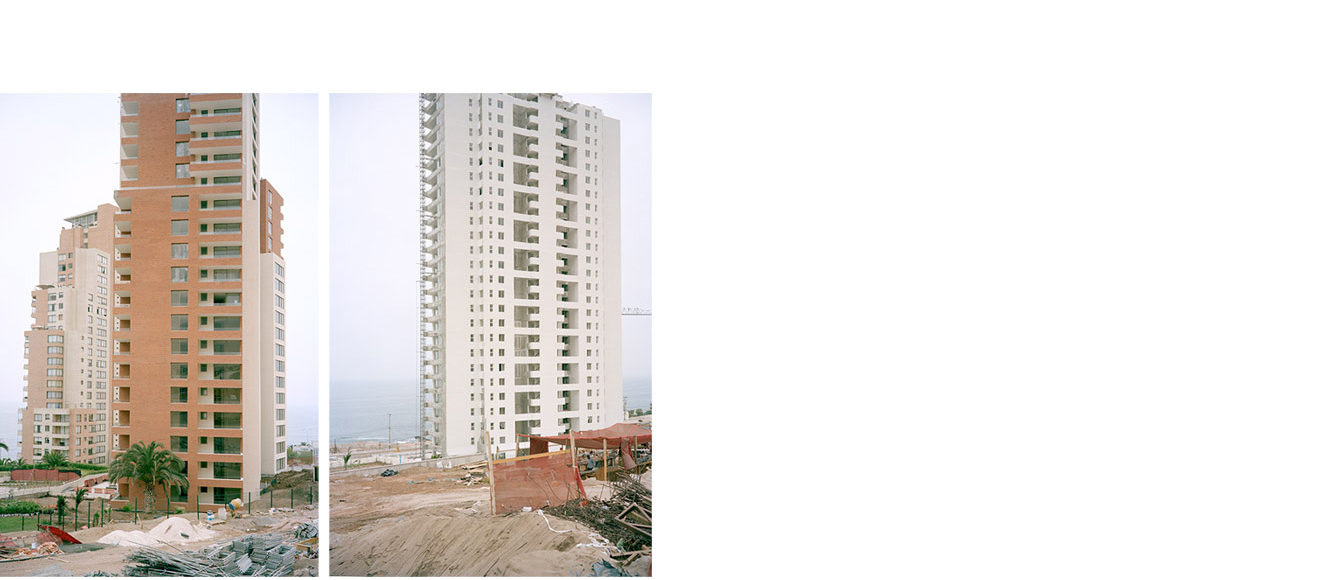
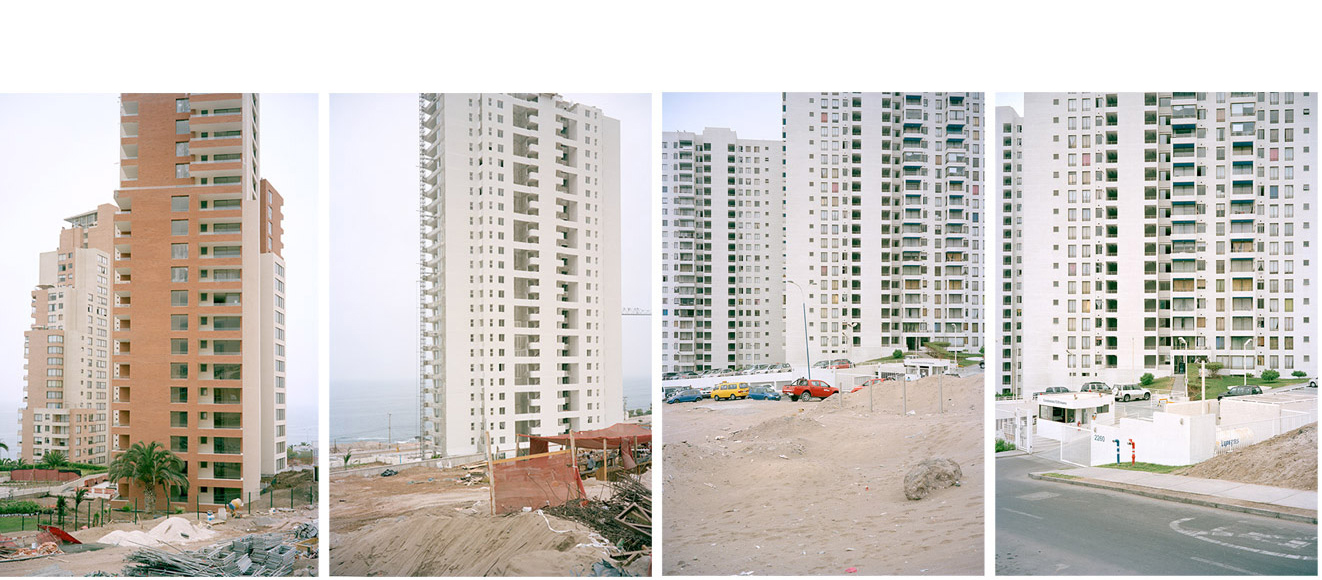
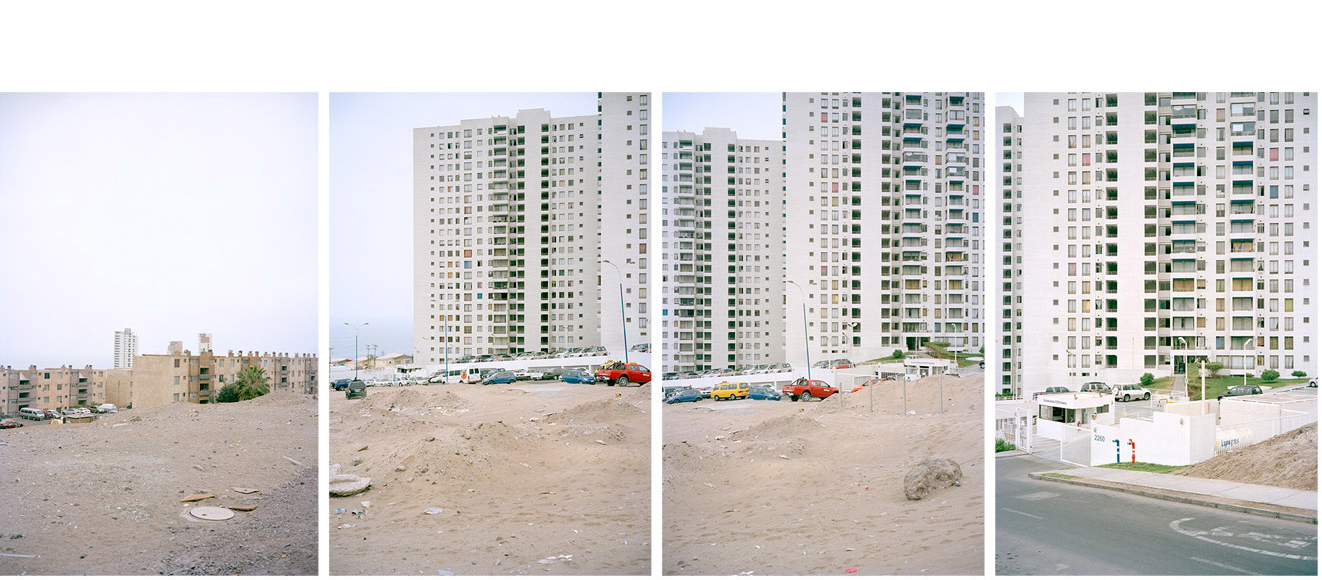
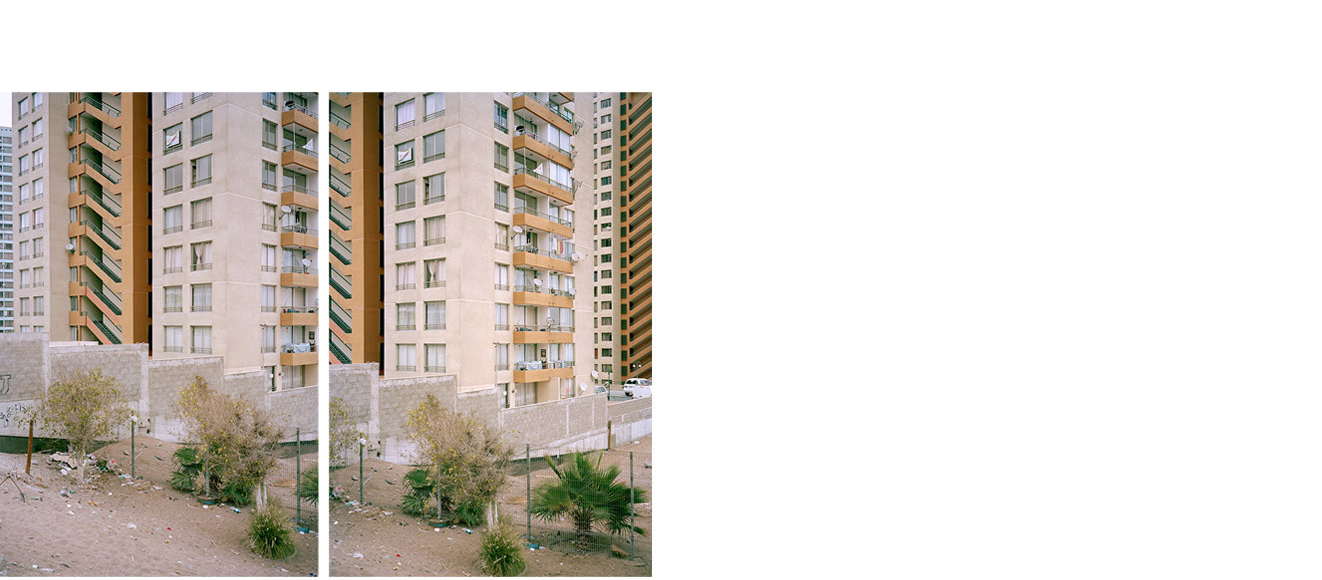
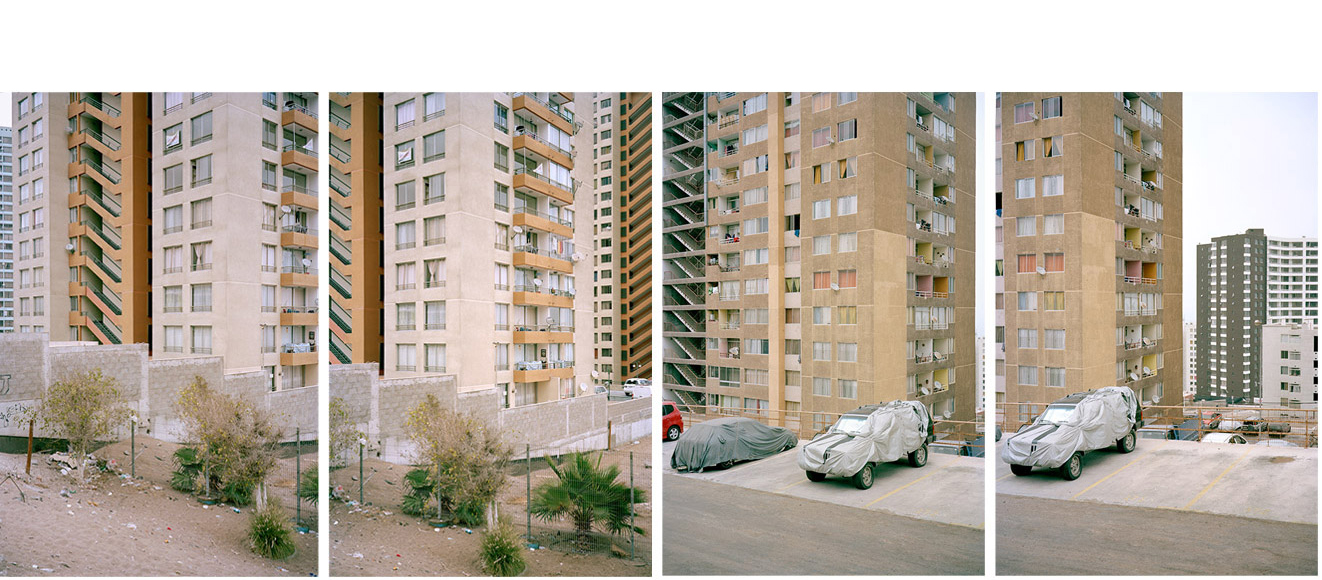
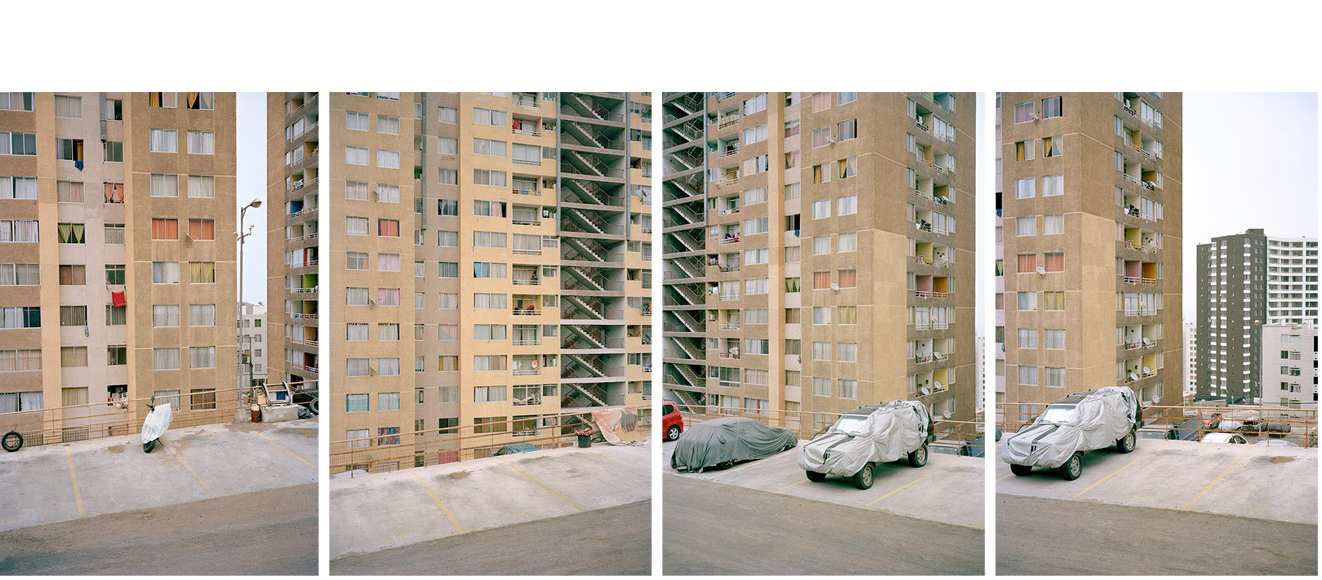


Until the 1970s, Iquique was a small port town characterised by low level urbanisation. After the 1980s, however, there was a dramatic acceleration in the urban sprawl beyond the city limits due to the impact of neo-liberal policies imposed by General Augusto Pinochet.
Due of these policies, new free trade agreements with the Latin American region and the opening of three large copper bodies by transnational corporations, the city became a magnet for investment, and as such, its social fabric was heavily impacted. The flow of capital brought new geographies of inequality to this inhospitable desert territory. While slums spread chaotically throughout the Atacama, serving as an unplanned solution to a huge displaced population, gated communities and high-rise buildings close to the Pacific secured ‘sea views’ and flourished as symbols of status.
These urban developments are tied to the ‘boom and bust’ of base metals, such as copper. In the 2000s, during the commodities boom, when prices rose by demand from emerging markets, particularly China, urban growth in Iquique accelerated rapidly. Most recently, with the slowdown of copper consumption from emerging markets, the city has experienced a dramatic fall in demand for housing, which has led to a stagnation of the local economy as a whole.